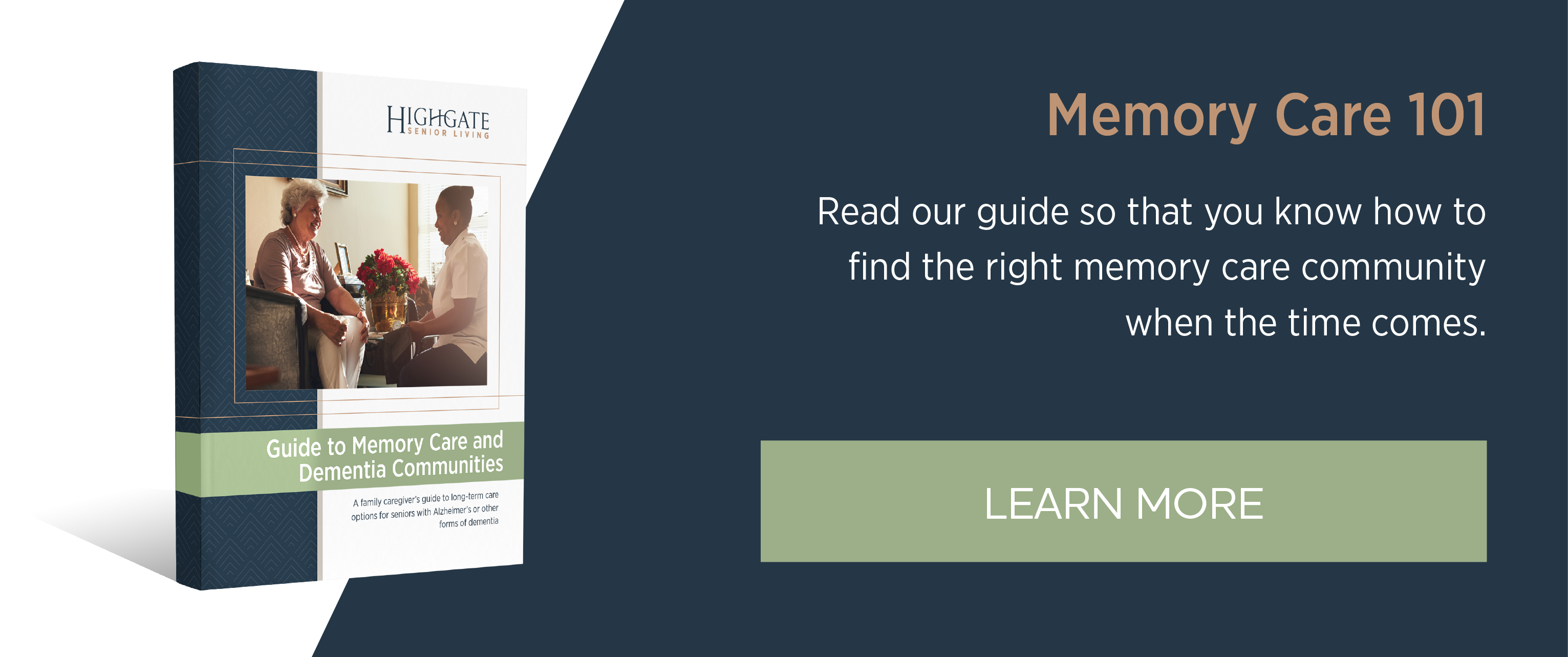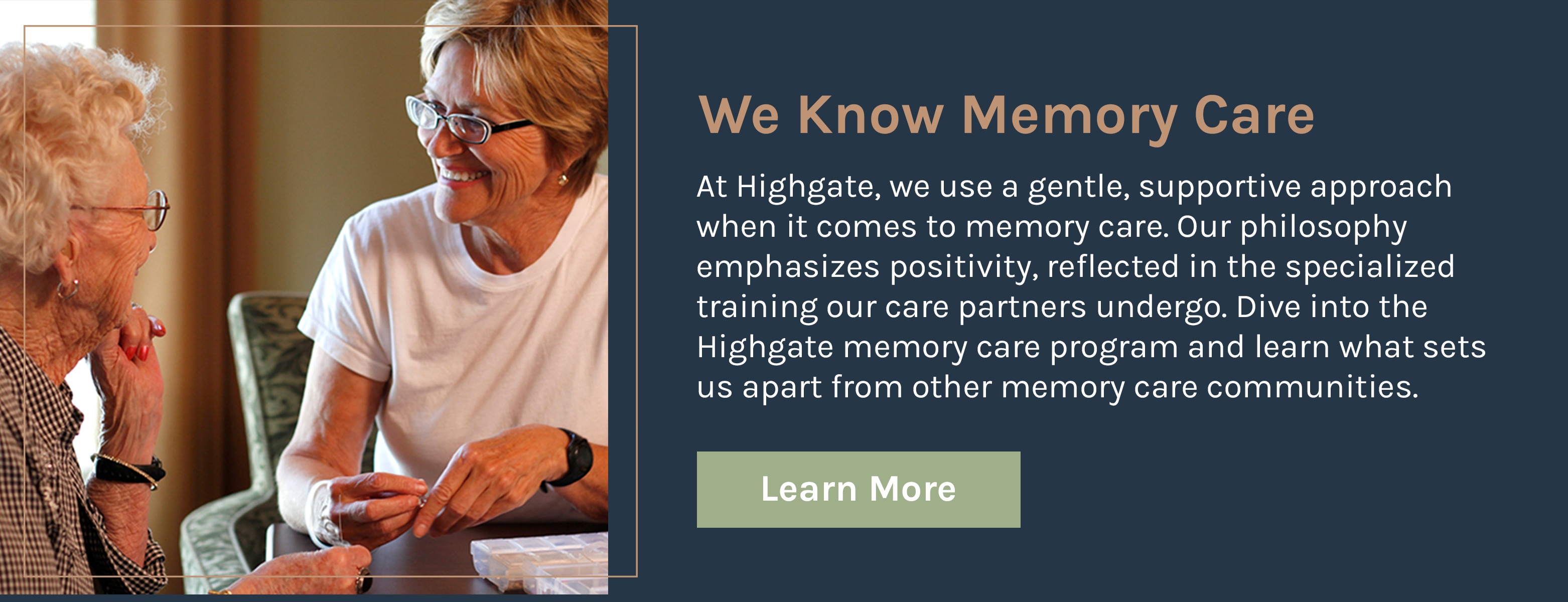
Receiving a diagnosis of Parkinson’s, Alzheimer’s, or one of the many forms of cognitive impairment can be scary, overwhelming, and heartbreaking. Depending on the progression of the disease, changes can happen rapidly physically or psychologically. In researching how to care for your loved one, you may have come across the term “memory care” and wondered exactly what it is. Whether you are already considering memory care options, or planning for the future, use this information to help you identify if considering a memory care facility is the right choice for your family.
What is a Memory Care Facility?
A memory care facility offers specialized training, programs, and care for those with memory loss diagnoses. The facility offers a secure, enriching environment for those with progressive memory loss. Memory care facilities are designed to provide 24/7 quality care for your loved one suffering from memory loss. Memory care communities provide around-the-clock staffing to assist your loved one at any hour. Depending on their care needs, staff can assist with providing meals, housekeeping, laundry, activities of daily living (like grooming and dressing), and socialization. Memory care facilities also offer a variety of activities for your loved one to participate in that they likely won’t have access to at home. According to an article published in the Journal of the American Medical Association long-term exercise programs, like those offered in a memory care facility, can cause a decrease in cognitive decline in older women. Memory care facilities also allow you to be at peace knowing your loved one is safe and well taken care.
When is the right time for memory care?
Making the decision to find a memory care facility for a loved one is different for every family. Here are some reasons to consider a memory care community before a severe decline:
1. The Move is Easier.
As memory loss progresses, a change in environment can be overwhelming and can cause anxiety. Moving to a memory care community to allow your loved one to adjust, make new friends, and get to know caregivers before they are unable to engage with staff and other residents ensures they have time to build trust with those caring for them.
2. Access to Programs They Won't Have at Home
As mentioned earlier in this article, the benefits of exercise programs and activities that challenge your loved one’s memory can decrease the rate at which their memory loss declines.
3. As Care Needs Change, You Can Support Your Loved One
Caregiving can take a real toll on personal relationships. Allowing others to monitor for changes in condition and to provide assistance with daily care needs can prevent embarrassment or frustration with the limited control your parent or spouse has over their disease progression allowing you to be their support system and the family they need by their side.







